Also Known As
- Spathiphyllum wallisii
- white sails
How to Care?
 Sunlight
Sunlight
- Bright indirect sunlight
 Water
Water
- Twice a week
 Location
Location
- Indoor
 Maintenance
Maintenance
- Low care
 Size
Size
- 8 × 6 Inches Approx.
 Season
Season
- All season
 Fragrance
Fragrance
- No
 Specialty
Specialty
- Beautiful White Flower
The Peace Lily, scientifically known as Spathiphyllum, is a popular and elegant houseplant cherished for its beautiful white flowers and lush, dark green foliage. Native to the tropical regions of Central and South America, this plant belongs to the Araceae family and is widely cultivated as an indoor ornamental plant worldwide.
The Peace Lily is characterized by its large, lance-shaped leaves that arch gracefully outward from the center of the plant. The foliage has a glossy texture and can grow to be quite substantial, with leaves reaching lengths of 6 to 10 inches (15 to 25 cm) or more. The dark green color of the leaves serves as a lovely backdrop for the striking white flowers that emerge from the center of the plant.
The flowers of the Peace Lily are unique and captivating, consisting of a single, white, spoon-shaped petal, or “spathe,” surrounding a yellow spadix. The spathe looks like a delicate, hooded cup, while the spadix protrudes from the center and contains the plant’s reproductive organs. The flowers often appear in clusters, adding to their visual impact and beauty.
One of the most appealing features of the Peace Lily is its ability to purify indoor air by filtering out harmful toxins such as formaldehyde, benzene, and ammonia. This makes it an excellent choice for improving indoor air quality and creating a healthier living environment.
The Peace Lily is a relatively low-maintenance houseplant, making it suitable for both experienced and novice gardeners. It thrives in bright, indirect light, but it can tolerate lower light conditions. Direct sunlight should be avoided, as it can scorch the leaves and cause them to turn yellow. A location with filtered or dappled light is ideal.
When it comes to watering, the Peace Lily prefers consistently moist soil but is sensitive to overwatering. It’s best to let the top inch (2.5 cm) of the soil dry out before watering again. Drooping leaves are a sign that the plant needs water, while yellowing leaves may indicate overwatering. Proper drainage is essential to prevent waterlogged roots.
Maintaining a humid environment is beneficial for the Peace Lily. Regular misting of the leaves or placing the plant on a humidity tray can help keep the humidity levels up, especially in dry indoor environments.
The Peace Lily is generally considered safe for pets, but the sap can cause mild irritation if ingested, so it’s essential to keep it out of reach of curious pets and small children.
With its graceful appearance, air-purifying qualities, and ease of care, the Peace Lily is a favorite choice for homes, offices, and various indoor spaces, adding a touch of tranquility and natural beauty to its surroundings.
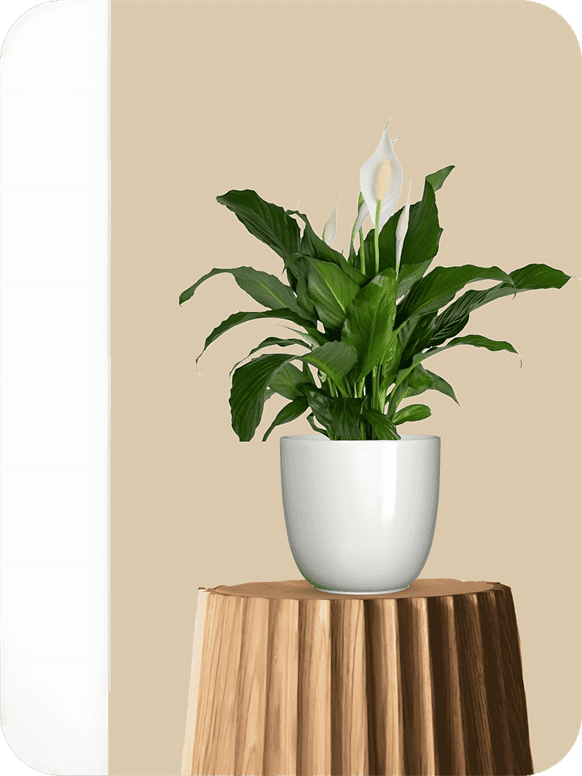
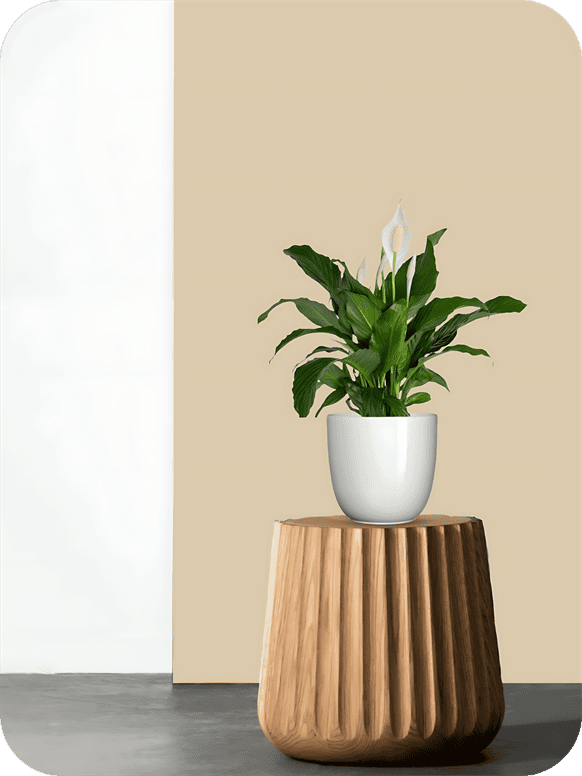
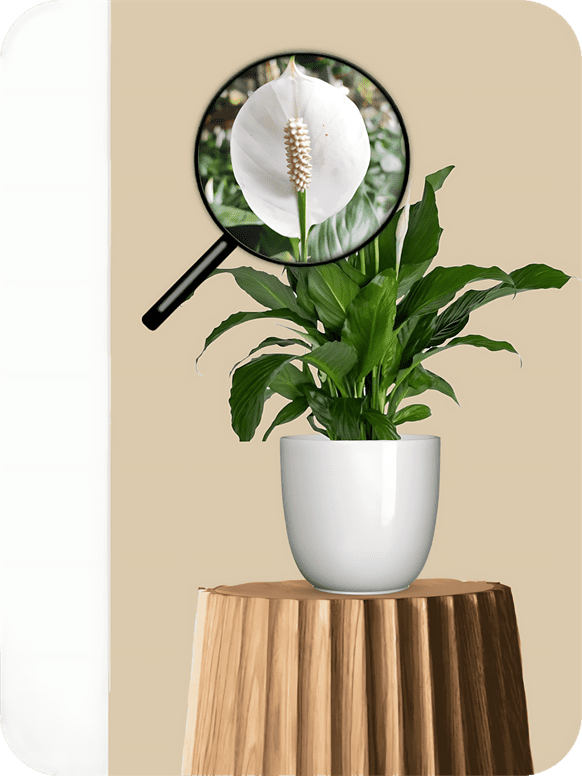
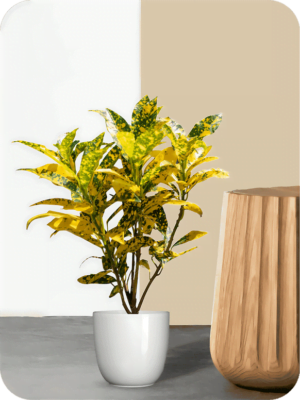
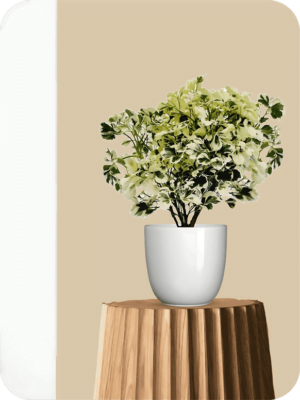
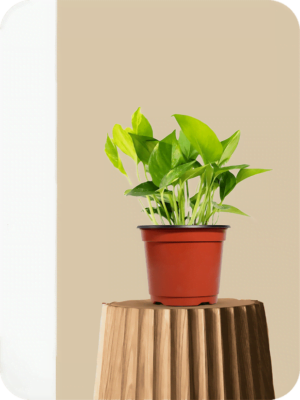
3 reviews for Peace lily Plant